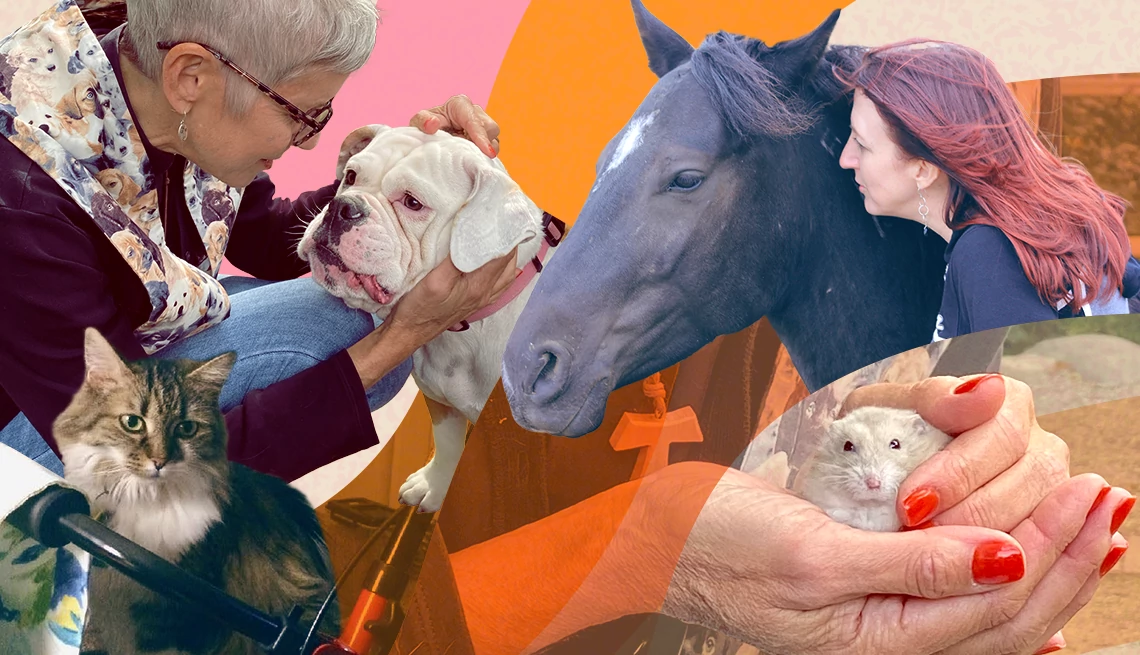Play all audios:
Animal chaplains can bear witness and offer support at any stage of a pet's health. "We assist you in whatever practice is meaningful for you and, we hope, your animal
companion," says Sarah Bowen, executive director of the nine-month Animal Chaplaincy Training Program through the nonprofit Compassion Consortium, which she cofounded. They may lead a
ceremonial blessing at a public or private event. Before losing her 11-year-old English setter, Delmon, in June, 64-year-old Carol Ashcroft brought him to an occasional outdoor blessing
service at her church, where people sit in lawn chairs with their pets. The animal chaplain "lays hands on each and every single one of them, and it’s beautiful," says Ashcroft, a
retired office manager from Kent City, Michigan. "She literally gets down on her knees. She pets them on the head, she looks in their eyes, she says a little prayer. It's between
her and the dog or cat or whatever it is that's there." "God gave us these beautiful creatures, and it's our responsibility to take care of them," she adds. THEY
HELP WITH THE DEATH AND HEALING PROCESS. Animal chaplain Shel Graves, 52, based in Everett, Washington, tries to help clients find meaning after the loss of a pet by paying homage to rituals
now missing. For instance, a long morning walk with a dog may have meant breakfast beforehand and grabbing a leash on the way out the door. Graves suggests "trying to put some thought
and care" into continuing to take that morning walk "so that there's not just an absence." She recommends using this time to think about your pet and pay close attention
to your surroundings. "These are not small losses," Graves says. "These take up a lot of room in our hearts — just a huge amount of space. Being able to have someone who can
understand … is very important." THEY ARE TRAINED TO UNDERSTAND DIFFERENT PERSPECTIVES, RELIGIONS. For example, Bowen explains, in the Buddhist tradition there are mantras said to aid
in animal healing. In Jewish and Christian traditions, blessings often are offered. Someone identifying as spiritual but not religious may want help envisioning their animal bathed in light
or supported by cosmic energy. Bowen notes that animal chaplains are trained in understanding scientific perspectives as well. "We observe animal body language, indicators of stress and
indicators of specific emotions to determine what body-mind-spirit practices may be useful," she explains. “When working on a team with veterinarians or other animal care
professionals, we have even more information about what is helpful for an animal. All to say it isn't just wishful thinking. We work with evidence-based practices." IS THERE A
COST? Bowen says that some animal chaplains work with organizations based on a fee-for-service model in conjunction with a veterinary practice, or their salary is paid for by a church as a
benefit to their congregation. Others work in private practice with sliding scales comparable to many healing professions — generally $30 to $70 for a private session. Others work primarily
by donation.

